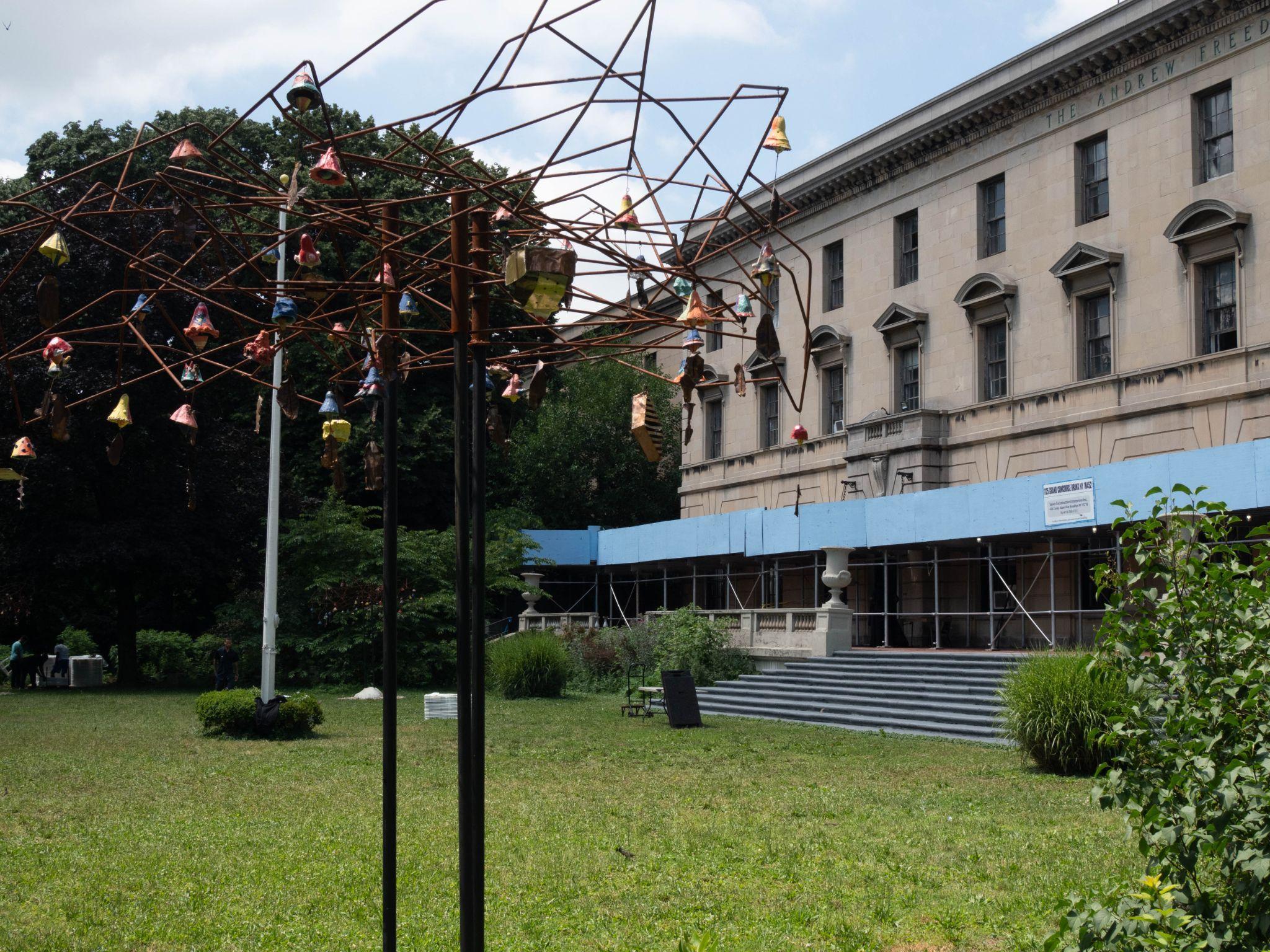In an effort to address the South Bronx’s extensive digital divide, community activists have banded together to create a solution.
A group calling itself The Bronx Digital Equity Coalition is launching a pilot that will be centered at the Andrew Freedman Home, from where they will provide high-speed internet, free access to workstations, and digital literacy training. The pilot is one of the key initiatives spearheaded by The Bronx Community Foundation, whose president and CEO is the city’s former education chancellor, Dr. Meisha Porter.
The Bronx has the most residents without home broadband internet access of the five boroughs, 38 percent.
Few people understand the struggle for equitable access to broadband than Dr. Meisha Porter, knows the struggle for equitable access in the Bronx as well as Porter, who spent several years as principal of The Bronx School for Law, Government and Justice in Morrisania.
“I was a principal two blocks from the Andrew Freedman Home,” she recalled. “If it rained, we lost power and internet, in a school building that was only built 10–15 years ago.”
The city’s public wifi network LinkNYC will provide free internet service for the center, which has become known for its wifi kiosks, and which helped establish the first Gigabit center in Harlem earlier this year.
To ensure their lofty goals are met, the Bronx Gigabit center’s organizers will launch two new programs. One of them, The Digital Library Project, was created by the Andrew Freeman Home’s leadership, to provide kids and adults with digital production skills that will help them find jobs in fields connected with the arts. It will offer virtual programs in animation, multimedia production and other specialties, in an effort to maximize peer-to-peer connectivity.
The new center will team with nonprofit The Knowledge House to provide tech training for Bronxites, to help them stay apace with the digital industry, and will offer workshops focusing on computing skills, such as internet basics and foundational coding.
Participants in the programs will be eligible to apply for the organization’s fellowships, and a coding fellowship will be available for high school students to learn coding design. A separate fellowship will be awarded to adults eager to explore a tech career, but have limited know-how.
The Bronx Community Foundation has provided the center with a sizable grant to provide Macbooks for participants. The coalition hopes to work with its partners, Zenfi Networks and others, to provide permanent funding.
Initial plans call for access for 30-50 patrons at a time to use the resources, although the coalition is hoping to expand the center over time, to take advantage of the Freedman Home’s expansive space.
The center is slated to open next January. Before then, the Bronx Community Foundation says it will survey South Bronxites to see what programs and specializations residents most want to see established.
“We really want this to be a collaborative space,” said Dr. Porter. “We don’t think it’s up to us, or any one person to decide what happens here.”
The Gigabit Center is not the first local initiative with high hopes of leveling the digital playing field in the borough. Tech training programs like those at Per Scholas, have offered technical training for some time. A member group of the coalition, Per Scholas runs 12-16 week bootcamp style courses for students in its own program, distinguishing it from the newly proposed programs and fellowships at The Gigabit Center. A spokesperson for Per Scholas said the Gigabit Center will offer “another opportunity for young adults to start a career in tech” in the Bronx.
A now-defunct initiative called MetaBronx , which included some members from the digital equity coaltion, was established in 2016 to convert industrial Port Morris into a tech mecca, but that initiative faded when some of the partners and start-ups pulled out. That is a fate the coalition doesn’t want to repeat.
“What we are really looking to do is to become a conveyancer and a partner,” said Dr. Porter. “To make sure that the organizations that have come in to build the networks don’t just walk away.”

